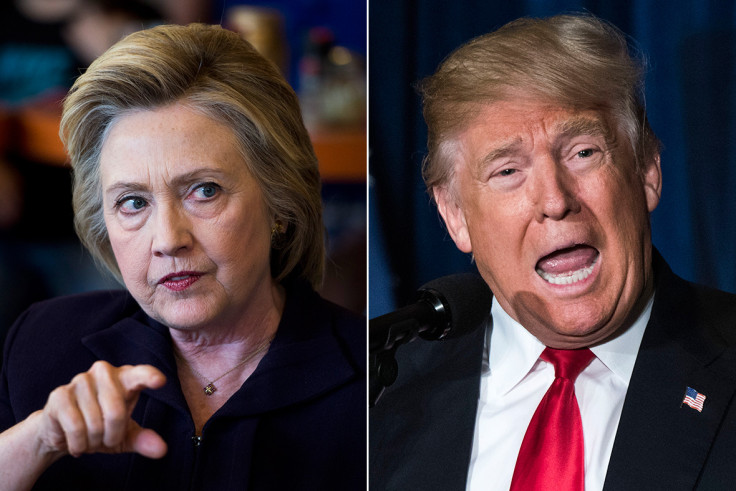US election guide: Democrat and Republican national conventions

Where: The Democrat national convention will be held at the Wells Fargo Center in Philadelphia, while the Republican convention will take place at the Quicken Loans Arena in Cleveland, Ohio.
When: The GOP conventions runs from 18-21 July, while the Democrat convention takes place from 25-28 July 2016.
What is it: Each party holds a convention every four years to unify the party, choose presidential and vice presidential candidates and decide on party platform. The conventions are the culmination of the presidential nominee race, with delegates and superdelegates collected during primary season voting at the convention.
What happens at the convention? Delegates from all the US states will vote for their party's presidential nominee at a four-day event attended by more than 50,000 people. There will also be speakers on topics related to the party's policies, keynote speakers, and in days gone by there would be a great deal of behind-the-scenes negotiation if no candidate had a clear majority going into the convention.
What are delegates and superdelegates? Delegates are chosen by voters at primaries and caucuses, representing their voters to choose the voters' preferred candidate. If a candidate wins 10 delegates in one state, those delegates are bound to that candidate by the party's rules.
Democrat superdelegates are not bound by such rules, they are not part of the primary and caucus votes and are usually prominent figures in the party. As such, they are free to throw their support behind whichever candidate they prefer and, most importantly, they are not bound to stick with the candidate they originally backed – meaning they can change their vote when they reach the convention if they choose.
Superdelegates account for a fifth of the Democrats delegates, where there are 719 of a total 4,765 delegates. The Republican Party does not have superdelegates in the same way the Democrats do. Republican uncommitted delegates number just 7% of the available delegates.
What happens if no one wins the first round? In the instance that neither candidate receives more than 50% of the delegates (for Democrats that would be 2,383 out of a possible 4,765 delegates and for Republicans), ahead of the vote, there would be what is known as a contested convention – meaning either candidate could win on first vote.
However, currently this is not the case with either party as Clinton is presumably heading into the convention with enough delegates including superdelegates, while Trump has enough delegates for a first-round win and is also uncontested at this stage.
Following the first vote, if neither candidate emerged victorious, in what is known as a brokered convention, many of the delegates that have previously been bound become unbound and are free to vote for either candidate in the second round of voting – although rules differ from party to party and state to state in terms of how and when delegates become unbound.
After a first round with no outcome, the rounds of voting continue rolling until a candidate emerges with the majority of votes. In these cases this can go on for a while – with the 1924 convention taking 103 rounds of voting to select a candidate and running from 24 June to 9 July.
In cases where the voting rolls on to more than the first and second rounds, deals are likely being made behind the scenes to encourage delegates to vote for a particular candidate.
Why hold A Democrat convention if Clinton has enough delegates to win the nomination? Clinton has secured a total of 2,777 delegates of the 2,383 needed to secure the nomination. However, of those, 574 are 'superdelegates' meaning unlike regular delegates they are unbound and can therefore change their vote at any time ahead of the convention.
At the convention, if all 574 superdelegates changed their vote, Clinton would have only 2203 delegates, which is not enough to secure her victory on the first round of voting. In addition, the convention is also held to unify the party and choose VP candidates, and has been held every four years since 1832.
Is there any way Trump won't be the Republican Party's candidate?
Because conventions are governed by parties themselves rather than by central government or state law, the rules can change even as the conventions are taking place – particularly if a candidate doesn't pick up enough votes to win on the first round. Additionally, the Rules Committee, which meets a week before the convention, outlines all rules for the convention – old and new.
These rules are then ratified by the convention. But in theory, if the committee passed a rule saying only ginger-haired people could cast a vote at the convention, this could affect the outcome of the vote (though public backlash against more outlandish rules may keep the committee in check to a degree).
As Trump has enough delegates to win the nomination on the first round of voting, you'd be forgiven for thinking the nomination is all tied up. However, rumours abound of a late challenge from a group of delegates who want to prevent Trump from getting the nomination. They suggest GOP rules state all delegates are free to vote how they wish on first round – e.g. they are unbound – and therefore want to propose another candidate.
How likely this is differs from source to source, but given Trump's popularity with the electorate, it would be a gamble for the party to field someone other than Trump, in addition to potentially not being allowed by the convention.
© Copyright IBTimes 2025. All rights reserved.





















